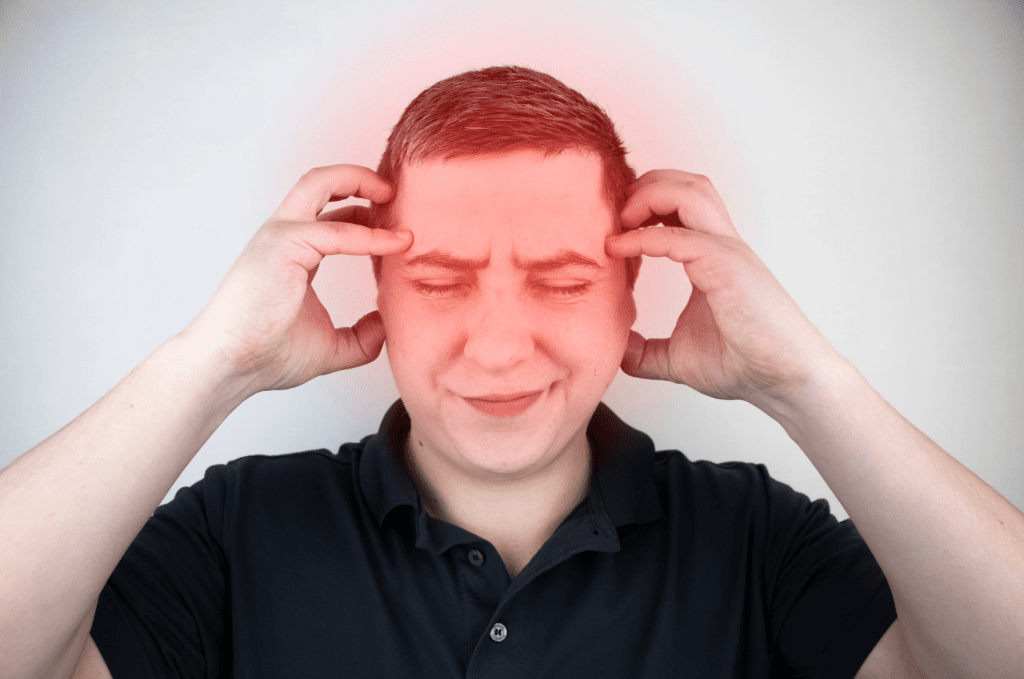
Almost everyone experiences a headache now and then. We all know the feeling. Work stress plus fluorescent lighting at the office could be causing a dull throb. Or you could be dehydrated from the extreme summer heat and the painful pulses in your head are inescapable.
While these situations seem like the norm, for millions of Americans, frequent or severe headaches go far beyond the occasional tension pain. Chronic headaches and migraines can disrupt daily life, affect mood and sleep, and interfere with work, relationships, and overall well-being.
At Bethany Medical Clinic, our multidisciplinary team helps patients get to the root of their pain and create personalized care plans that offer long-term relief. If you’re experiencing these chronic symptoms, read on to learn more on how we can help.
Headaches vs. Migraines: What’s the Difference?
Headache is a general term for pain in the head, scalp, or neck. Headaches can be:
● Tension headaches (most common): dull, aching pain on both sides of the head, often
related to stress, fatigue, or poor posture
● Cluster headaches: intense pain around one eye, usually in cyclical patterns or
“clusters”
● Sinus headaches: caused by inflamed sinuses, often with pressure behind the eyes,
cheeks, or forehead
Migraines, on the other hand, are a neurological disorder. They are:
● Often moderate to severe in intensity
● Usually one-sided, but can vary
● Associated with nausea, vomiting, sensitivity to light and sound, and sometimes
visual disturbances (auras)
Migraines can last for hours or days and often require targeted treatment beyond standard
painkillers.
What Causes Headaches and Migraines?
There isn’t always a single cause, but common triggers can include:
● Stress and other emotions
● Biological and environmental conditions, such as hormonal shifts or exposure to light
or smells
● Fatigue and changes in one’s sleep pattern
● Glaring or flickering lights
● Weather changes
● Certain foods and drinks
● Underlying medical conditions such as high blood pressure, sinus infections, or TMJ
disorders
Keeping track of what is going on around the time a migraine or headache appears in a journal
of some kind could help inform what causes them to trigger.

How Primary Care Providers Can Help
Primary care providers are often the first and best place to start when managing chronic
headaches. At Bethany Medical Clinic, we:
● Gather your detailed medical history to identify patterns and triggers. Coming
prepared to your appointment with that information will help expedite diagnosing the
issue.
● Order diagnostic testing when needed (e.g., bloodwork, imaging)
● Prescribe preventive or abortive medications tailored to your needs
● Coordinate care with specialists when appropriate (neurology, ENT, etc.)
We can also help you track symptoms over time, which is critical in identifying triggers and
assessing whether treatments are working.
When to Seek Help for Your Headaches
You should make an appointment if:
● Your headaches are frequent (more than once a week) or severe
● You use over-the-counter painkillers more than twice a week
● Your headaches interfere with work, sleep, or daily function
● You experience neurological symptoms like weakness, vision changes, or speech
difficulty

Get to the Root of Your Headaches
Headaches aren’t something you just have to live with. With the right evaluation and treatment plan, most patients see significant improvement, often with just a few adjustments to their lifestyle or medication regimen.
Whether your headaches are new, worsening, or have been impacting you for years, our team at Bethany Medical Clinic is here to help.
Schedule a visit today with one of our primary care providers and let’s build a care plan that supports long-term relief.
